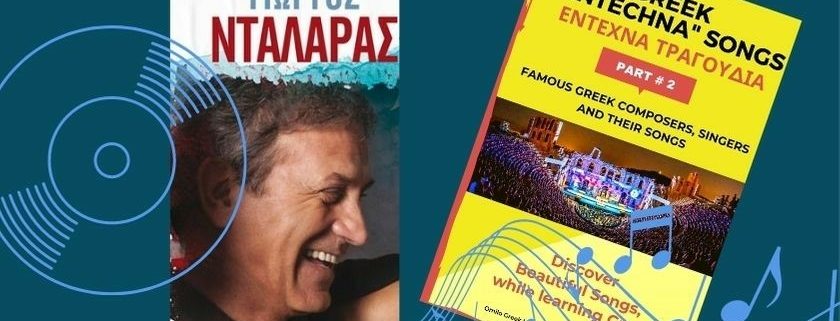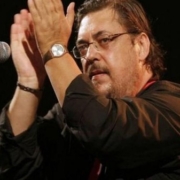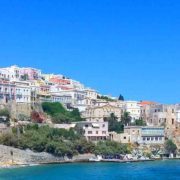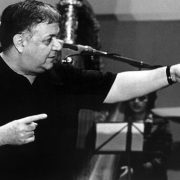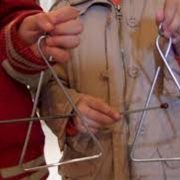Do you like Greek music?┬Ā ╬Ż╬▒Žé ╬▒Žü╬ŁŽā╬Ą╬╣ ╬Ę ╬Ą╬╗╬╗╬Ę╬Į╬╣╬║╬« ╬╝╬┐ŽģŽā╬╣╬║╬«;
Maybe this is not an easy question to answer, since there are so many different genres of Greek songs and music.
╬ŖŽāŽēŽé ╬Į╬▒ ╬╝╬Ę╬Į ╬Ą╬»╬Į╬▒╬╣ ŽäŽīŽā╬┐ ╬ĄŽŹ╬║╬┐╬╗╬┐ ╬Į╬▒ ╬▒ŽĆ╬▒╬ĮŽä╬«Žā╬ĄŽä╬Ą Žā╬Ą ╬▒ŽģŽä╬« Žä╬Ę╬Į ╬ĄŽüŽÄŽä╬ĘŽā╬Ę, ╬▒Žå╬┐ŽŹ ŽģŽĆ╬¼ŽüŽć╬┐Žģ╬Į ŽĆ╬┐╬╗╬╗╬¼ ╬Ą╬»╬┤╬Ę ╬Ą╬╗╬╗╬Ę╬Į╬╣╬║╬«Žé ╬╝╬┐ŽģŽā╬╣╬║╬«Žé.
You might like one particular genre, like Rembetiko, Pop, Rock, but maybe not another genre like Laika, Entechna…?
So a better question might be;
Which genre of Greek Music do you like? Or, do you like Greek entechna songs ?
But┬Ā with those questions,┬Ā many non-Greeks will not be able to answer them, since they do not know the names or the difference between the various musical genres, neither the time-period that particular music was created in Greece.
╬Ā╬┐╬╗ŽŹ ŽĆ╬╣╬Ė╬▒╬ĮŽī ╬Į╬▒ Žā╬▒Žé ╬▒Žü╬ŁŽā╬Ą╬╣ ╬Ł╬Į╬▒ ŽāŽģ╬│╬║╬Ą╬║Žü╬╣╬╝╬Ł╬Į╬┐ ╬Ą╬»╬┤╬┐Žé, ŽīŽĆŽēŽé Žä╬┐ Žü╬Ą╬╝ŽĆ╬ŁŽä╬╣╬║╬┐, ╬Ę ŽĆ╬┐ŽĆ ╬« ╬Ę Žü╬┐╬║ ╬╝╬┐ŽģŽā╬╣╬║╬« ╬║╬▒╬╣ ╬Į╬▒ ╬╝╬Ę Žā╬▒Žé ╬▒Žü╬ŁŽā╬Ą╬╣ ╬║╬¼ŽĆ╬┐╬╣╬┐ ╬¼╬╗╬╗╬┐ ╬Ą╬»╬┤╬┐Žé, ŽīŽĆŽēŽé Žä╬┐ ╬╗╬▒ŽŖ╬║Žī ╬║╬▒╬╣ Žä╬┐ ╬Ł╬ĮŽä╬ĄŽć╬Į╬┐ ŽäŽü╬▒╬│╬┐ŽŹ╬┤╬╣.┬Ā╬ĢŽĆ╬┐╬╝╬Ł╬ĮŽēŽé, ╬║╬▒╬╗ŽŹŽä╬ĄŽü╬Ę ╬Ė╬▒ ╬«Žä╬▒╬Į ╬Ę ╬ĄŽüŽÄŽä╬ĘŽā╬Ę: ╬Ā╬┐╬╣╬┐ ╬Ą╬»╬┤╬┐Žé ╬Ą╬╗╬╗╬Ę╬Į╬╣╬║╬«Žé ╬╝╬┐ŽģŽā╬╣╬║╬«Žé Žā╬▒Žé ╬▒Žü╬ŁŽā╬Ą╬╣; ╬ō╬╣╬▒ ŽĆ╬▒Žü╬¼╬┤╬Ą╬╣╬│╬╝╬▒, Žā╬▒Žé ╬▒Žü╬ŁŽā╬Ą╬╣ Žä╬┐ ╬Ł╬ĮŽä╬ĄŽć╬Į╬┐ ŽäŽü╬▒╬│╬┐ŽŹ╬┤╬╣;
╬æŽģŽä╬« ╬Ą╬»╬Į╬▒╬╣ ╬╝╬╣╬▒ ╬ĄŽüŽÄŽä╬ĘŽā╬Ę, ŽāŽä╬Ę╬Į ╬┐ŽĆ╬┐╬»╬▒ ŽĆ╬┐╬╗╬╗╬┐╬» ╬ł╬╗╬╗╬Ę╬Į╬ĄŽé ╬┤╬Ą╬Į ╬╝ŽĆ╬┐Žü╬┐ŽŹ╬Į ╬Į╬▒ ╬▒ŽĆ╬▒╬ĮŽä╬«Žā╬┐Žģ╬Į, ╬▒Žå╬┐ŽŹ ╬┤╬Ą╬Į ╬Š╬ŁŽü╬┐Žģ╬Į Žä╬▒ ╬┐╬ĮŽī╬╝╬▒Žä╬▒ ╬« Žä╬Ę ╬┤╬╣╬▒Žå╬┐Žü╬¼ ╬▒╬Į╬¼╬╝╬ĄŽā╬▒ ŽāŽä╬▒ ╬┤╬╣╬¼Žå╬┐Žü╬▒ ╬╝╬┐ŽģŽā╬╣╬║╬¼ ╬Ą╬»╬┤╬Ę, ╬┐ŽŹŽä╬Ą Žä╬Ę╬Į ╬▒╬║Žü╬╣╬▓╬« ŽćŽü╬┐╬Į╬╣╬║╬« ŽĆ╬ĄŽü╬»╬┐╬┤╬┐ ╬║╬▒Žä╬¼ Žä╬Ę╬Į ╬┐ŽĆ╬┐╬»╬▒ Žä╬┐ ╬║╬¼╬Ė╬Ą ╬Ą╬»╬┤╬┐Žé ╬▒╬Į╬▒ŽĆŽäŽŹŽć╬Ė╬Ę╬║╬Ą ŽāŽä╬Ę╬Į ╬Ģ╬╗╬╗╬¼╬┤╬▒.
Therefore, many non-Greeks loving Greek music usually refer much more to the name of a singer or song, their favorite Greek singer(s), or favorite songs.
Many times they have bought or downloaded music from particular Greek singers, or even better, have seen them in a live concert abroad or in Greece.
╬łŽäŽā╬╣, ŽĆ╬┐╬╗╬╗╬┐╬» ╬¼╬Į╬ĖŽüŽēŽĆ╬┐╬╣ Žä╬┐Žģ ╬Ą╬ŠŽēŽä╬ĄŽü╬╣╬║╬┐ŽŹ ŽĆ╬┐Žģ ╬▒╬│╬▒ŽĆ╬┐ŽŹ╬Į Žä╬Ę╬Į ╬Ą╬╗╬╗╬Ę╬Į╬╣╬║╬« ╬╝╬┐ŽģŽā╬╣╬║╬« ╬Ė╬▒ ╬▒╬Į╬▒Žå╬ĄŽü╬Ė╬┐ŽŹ╬Į ŽĆ╬ĄŽü╬╣ŽāŽāŽīŽä╬ĄŽü╬┐ ŽāŽä╬┐ Žī╬Į╬┐╬╝╬▒ ╬Ą╬ĮŽīŽé ŽäŽü╬▒╬│╬┐Žģ╬┤╬╣ŽāŽä╬« ╬« ╬Ą╬ĮŽīŽé ŽäŽü╬▒╬│╬┐Žģ╬┤╬╣╬┐ŽŹ, ŽāŽä╬┐ŽģŽé ╬▒╬│╬▒ŽĆ╬Ę╬╝╬Ł╬Į╬┐ŽģŽé Žä╬┐ŽģŽé ╬ł╬╗╬╗╬Ę╬Į╬ĄŽé ŽäŽü╬▒╬│╬┐Žģ╬┤╬╣ŽāŽä╬ŁŽé ╬« ŽāŽä╬▒ ╬▒╬│╬▒ŽĆ╬Ę╬╝╬Ł╬Į╬▒ Žä╬┐ŽģŽé ŽäŽü╬▒╬│╬┐ŽŹ╬┤╬╣╬▒. ╬Ā╬┐╬╗╬╗╬ŁŽé Žå╬┐Žü╬ŁŽé ╬ŁŽć╬┐Žģ╬Į ╬║╬▒Žä╬Ą╬▓╬¼Žā╬Ą╬╣ ╬« ╬▒╬│╬┐Žü╬¼Žā╬Ą╬╣ ╬╝╬┐ŽģŽā╬╣╬║╬« ŽāŽģ╬│╬║╬Ą╬║Žü╬╣╬╝╬Ł╬ĮŽē╬Į ╬Ģ╬╗╬╗╬«╬ĮŽē╬Į ŽäŽü╬▒╬│╬┐Žģ╬┤╬╣ŽāŽäŽÄ╬Į ╬«, ╬▒╬║Žī╬╝╬▒ ╬║╬▒╬╗ŽŹŽä╬ĄŽü╬▒, Žä╬┐ŽģŽé ╬ŁŽć╬┐Žģ╬Į ╬┤╬Ą╬╣ Žā╬Ą live ŽāŽģ╬Į╬▒Žģ╬╗╬»╬ĄŽé ŽāŽä╬┐ ╬Ą╬ŠŽēŽä╬ĄŽü╬╣╬║Žī ╬« ŽāŽä╬Ę╬Į ╬Ģ╬╗╬╗╬¼╬┤╬▒.
Also, many Omilo students started learning Greek, because they are crazy about a particular singer.
╬ĢŽĆ╬╣ŽĆ╬╗╬Ł╬┐╬Į, ŽĆ╬┐╬╗╬╗╬┐╬» ╬╝╬▒╬Ė╬ĘŽä╬ŁŽé Žä╬┐Žģ ╬¤╬╝╬╣╬╗ŽÄ ╬Š╬Ą╬║╬»╬Į╬ĘŽā╬▒╬Į ╬Į╬▒ ╬╝╬▒╬Ė╬▒╬»╬Į╬┐Žģ╬Į ╬Ģ╬╗╬╗╬Ę╬Į╬╣╬║╬¼, ╬ĄŽĆ╬Ą╬╣╬┤╬« ┬½ŽäŽü╬Ą╬╗╬▒╬»╬Į╬┐╬ĮŽä╬▒╬╣┬╗ ╬╝╬Ą ╬Ł╬Į╬▒╬Į ŽāŽģ╬│╬║╬Ą╬║Žü╬╣╬╝╬Ł╬Į╬┐ ŽäŽü╬▒╬│╬┐Žģ╬┤╬╣ŽāŽä╬«.
And this is for sure also the case with singer George Dalaras. ;-
Dalaras has a huge fan club within Greece, as well as abroad. He also performed many concerts out of Greece.
╬æŽģŽäŽī ╬▒╬║Žü╬╣╬▓ŽÄŽé ŽāŽģ╬╝╬▓╬▒╬»╬Į╬Ą╬╣ ╬╝╬Ą Žä╬┐╬Į ŽäŽü╬▒╬│╬┐Žģ╬┤╬╣ŽāŽä╬« ╬ō╬╣ŽÄŽü╬│╬┐ ╬ØŽä╬▒╬╗╬¼Žü╬▒! ╬¤ ╬ØŽä╬▒╬╗╬¼Žü╬▒Žé ╬ŁŽć╬Ą╬╣ ŽĆ╬┐╬╗ŽŹ ╬╝╬Ą╬│╬¼╬╗╬┐ fan club ŽīŽć╬╣ ╬╝Žī╬Į╬┐ ŽāŽä╬Ę╬Į ╬Ģ╬╗╬╗╬¼╬┤╬▒, ╬▒╬╗╬╗╬¼ ╬║╬▒╬╣ ŽāŽä╬┐ ╬Ą╬ŠŽēŽä╬ĄŽü╬╣╬║Žī.
╬ĢŽĆ╬»Žā╬ĘŽé, ╬ŁŽć╬Ą╬╣ ╬║╬¼╬Į╬Ą╬╣ ŽĆ╬┐╬╗╬╗╬ŁŽé ŽāŽģ╬Į╬▒Žģ╬╗╬»╬ĄŽé ╬Ą╬║ŽäŽīŽé ╬Ģ╬╗╬╗╬¼╬┤╬▒Žé.
Who is George Dalaras?┬Ā╬Ā╬┐╬╣╬┐Žé ╬Ą╬»╬Į╬▒╬╣ ╬┐ ╬ō╬╣ŽÄŽü╬│╬┐Žé ╬ØŽä╬▒╬╗╬¼Žü╬▒Žé;
Dalaras is a Greek musician and singer of international fame. He was born in Piraeus in 1949 and is widely considered among the most prominent figures of Greek contemporary music, with more than 70 personal albums and with sales of more than 15 million records to date. ┬ĀAlso, his father, Loukas Daralas, ┬Ā(difference in surname spelling), was a singer of rembetika music.
╬¤ ╬ØŽä╬▒╬╗╬¼Žü╬▒Žé ╬Ą╬»╬Į╬▒╬╣ ╬ł╬╗╬╗╬Ę╬Į╬▒Žé ╬╝╬┐ŽģŽā╬╣╬║ŽīŽé ╬║╬▒╬╣ ŽäŽü╬▒╬│╬┐Žģ╬┤╬╣ŽāŽä╬«Žé ╬┤╬╣╬Ą╬Ė╬Į╬┐ŽŹŽé Žå╬«╬╝╬ĘŽé. ╬ō╬Ą╬Į╬Į╬«╬Ė╬Ę╬║╬Ą ŽāŽä╬┐╬Į ╬Ā╬Ą╬╣Žü╬▒╬╣╬¼ Žä╬┐ 1949 ╬║╬▒╬╣ ╬Ė╬ĄŽēŽü╬Ą╬»Žä╬▒╬╣ ╬╝╬╣╬▒ ╬▒ŽĆŽī Žä╬╣Žé ŽĆ╬╣╬┐ ╬Ą╬Š╬ŁŽć╬┐ŽģŽā╬ĄŽé ╬╝╬┐ŽüŽå╬ŁŽé Žä╬ĘŽé ╬Ą╬╗╬╗╬Ę╬Į╬╣╬║╬«Žé ŽāŽŹ╬│ŽćŽü╬┐╬Į╬ĘŽé ╬╝╬┐ŽģŽā╬╣╬║╬«Žé, ╬╝╬Ą ŽĆ╬ĄŽü╬╣ŽāŽāŽīŽä╬ĄŽü╬▒ ╬▒ŽĆŽī 70 ŽĆŽü╬┐ŽāŽēŽĆ╬╣╬║╬¼ ╬¼╬╗╬╝ŽĆ╬┐Žģ╬╝ ╬║╬▒╬╣ ╬╝╬Ą ŽĆŽē╬╗╬«Žā╬Ą╬╣Žé ╬¼╬ĮŽē ŽäŽē╬Į 15 ╬Ą╬║╬▒Žä╬┐╬╝╬╝ŽģŽü╬»Žē╬Į ╬┤╬»Žā╬║Žē╬Į ╬╝╬ŁŽćŽü╬╣ Žā╬«╬╝╬ĄŽü╬▒. ╬ĢŽĆ╬»Žā╬ĘŽé, ╬┐ ŽĆ╬▒Žä╬ŁŽü╬▒Žé Žä╬┐Žģ, ╬ø╬┐Žģ╬║╬¼Žé ╬ØŽä╬▒Žü╬¼╬╗╬▒Žé (ŽģŽĆ╬¼ŽüŽć╬Ą╬╣ ╬┤╬╣╬▒Žå╬┐Žü╬¼ ŽāŽä╬┐ ╬ĄŽĆŽÄ╬ĮŽģ╬╝╬┐), ╬«Žä╬▒╬Į ŽäŽü╬▒╬│╬┐Žģ╬┤╬╣ŽāŽä╬«Žé Žä╬┐Žģ Žü╬Ą╬╝ŽĆ╬ŁŽä╬╣╬║╬┐Žģ ŽäŽü╬▒╬│╬┐Žģ╬┤╬╣╬┐ŽŹ.
Dalaras has sung songs of most Greek musical genres, solo as well as in combination with many other Greek, and foreign singers.
So if a person mentions he/she likes the music Dalaras is singing, then this is again not very helpful ¤Öé┬Ā He more or less performed it ┬½all┬╗!
Of course, it is possible to mention that you love the ‘voice’ of Dalaras, since he has indeed an amazing and recognizable voice, and is able to sing songs of any genre.
╬¤ ╬ØŽä╬▒╬╗╬¼Žü╬▒Žé ╬ŁŽć╬Ą╬╣ ŽäŽü╬▒╬│╬┐Žģ╬┤╬«Žā╬Ą╬╣ ŽäŽü╬▒╬│╬┐ŽŹ╬┤╬╣╬▒ ╬▒ŽĆŽī Žä╬▒ ŽĆ╬ĄŽü╬╣ŽāŽāŽīŽä╬ĄŽü╬▒ ╬Ą╬»╬┤╬Ę ╬Ą╬╗╬╗╬Ę╬Į╬╣╬║╬«Žé ╬╝╬┐ŽģŽā╬╣╬║╬«Žé, ╬Ą╬»Žä╬Ą ╬╝Žī╬Į╬┐Žé Žä╬┐Žģ ╬Ą╬»Žä╬Ą Žā╬Ą ŽāŽģ╬Į╬ĄŽü╬│╬▒Žā╬»╬▒ ╬╝╬Ą ŽĆ╬┐╬╗╬╗╬┐ŽŹŽé ╬¼╬╗╬╗╬┐ŽģŽé ╬ł╬╗╬╗╬Ę╬Į╬ĄŽé ╬║╬▒╬╣ ╬Š╬Ł╬Į╬┐ŽģŽé ŽäŽü╬▒╬│╬┐Žģ╬┤╬╣ŽāŽä╬ŁŽé. ╬¤ŽĆŽīŽä╬Ą, ╬┤╬Ą╬Į ╬Ą╬»╬Į╬▒╬╣ ŽĆ╬┐╬╗ŽŹ ╬▓╬┐╬Ę╬Ė╬ĘŽä╬╣╬║Žī, ╬▒╬Į ╬║╬¼ŽĆ╬┐╬╣╬┐Žé ŽĆ╬Ą╬╣ ŽīŽä╬╣ Žä╬┐Žģ ╬▒Žü╬ŁŽā╬Ą╬╣ ╬Ę ╬╝╬┐ŽģŽā╬╣╬║╬« ŽāŽä╬▒ ŽäŽü╬▒╬│╬┐ŽŹ╬┤╬╣╬▒ Žä╬┐Žģ ╬ØŽä╬▒╬╗╬¼Žü╬▒. ╬¤ŽŹŽä╬Ą ╬╗╬»╬│╬┐ ╬┐ŽŹŽä╬Ą ŽĆ╬┐╬╗ŽŹ, ╬┐ ╬ØŽä╬▒╬╗╬¼Žü╬▒Žé ╬ŁŽć╬Ą╬╣ ŽäŽü╬▒╬│╬┐Žģ╬┤╬«Žā╬Ą╬╣ Žä╬▒ ŽĆ╬¼╬ĮŽä╬▒! ╬”ŽģŽā╬╣╬║╬¼, ╬╝ŽĆ╬┐Žü╬Ą╬» ╬║╬▒╬Į╬Ą╬»Žé ╬Į╬▒ ╬▒╬Į╬▒Žå╬ŁŽü╬Ą╬╣ ŽīŽä╬╣ ╬╗╬▒ŽäŽü╬ĄŽŹ╬Ą╬╣ Žä╬Ę ŽåŽē╬Į╬« Žä╬┐Žģ ╬ØŽä╬▒╬╗╬¼Žü╬▒, ╬║╬▒╬ĖŽÄŽé ŽĆŽü╬▒╬│╬╝╬▒Žä╬╣╬║╬¼ ╬ŁŽć╬Ą╬╣ ╬╝╬╣╬▒ ŽģŽĆ╬ŁŽü╬┐Žć╬Ę ╬║╬▒╬╣ ╬▒╬Į╬▒╬│╬ĮŽēŽü╬»Žā╬╣╬╝╬Ę ŽåŽē╬Į╬« ╬║╬▒╬╣ ╬╝ŽĆ╬┐Žü╬Ą╬» ╬Į╬▒ ŽäŽü╬▒╬│╬┐Žģ╬┤╬«Žā╬Ą╬╣ ŽäŽü╬▒╬│╬┐ŽŹ╬┤╬╣╬▒ ╬║╬¼╬Ė╬Ą ╬Ą╬»╬┤╬┐ŽģŽé.
Here below we introduce you to a song performed by Dalaras, which is not a very known song.
This song is considered ┬½entechna music┬╗ and it was used for the Greek movie ┬½Christmas Tango┬╗/ ╬ż╬┐ Žä╬▒╬Į╬│╬║Žī ŽäŽē╬Į ╬¦Žü╬╣ŽāŽä╬┐Žģ╬│╬Ł╬Į╬ĮŽē╬Į
╬Ā╬▒Žü╬▒╬║╬¼ŽäŽē Žā╬▒Žé ŽāŽģŽāŽä╬«╬Į╬┐Žģ╬╝╬Ą ╬Ł╬Į╬▒ ŽīŽć╬╣ ╬║╬▒╬╣ ŽäŽīŽā╬┐ ╬│╬ĮŽēŽāŽäŽī ŽäŽü╬▒╬│╬┐ŽŹ╬┤╬╣ Žä╬┐Žģ ╬ØŽä╬▒╬╗╬¼Žü╬▒.
╬ż╬┐ ŽäŽü╬▒╬│╬┐ŽŹ╬┤╬╣ ╬▒ŽģŽäŽī ╬Ė╬ĄŽēŽü╬Ą╬»Žä╬▒╬╣ ╬ł╬ĮŽä╬ĄŽć╬Į╬┐ ╬║╬▒╬╣ ŽćŽü╬ĘŽā╬╣╬╝╬┐ŽĆ╬┐╬╣╬«╬Ė╬Ę╬║╬Ą ŽāŽä╬Ę╬Į ╬Ą╬╗╬╗╬Ę╬Į╬╣╬║╬« Žä╬▒╬╣╬Į╬»╬▒ ┬½╬ż╬┐ Žä╬▒╬Į╬│╬║Žī ŽäŽē╬Į ╬¦Žü╬╣ŽāŽä╬┐Žģ╬│╬Ł╬Į╬ĮŽē╬Į┬╗.
Click here to read more about that movie, and watch the trailer.
What is Entechno music?┬Ā╬ż╬╣ ╬Ą╬»╬Į╬▒╬╣ Žä╬┐ ╬ł╬ĮŽä╬ĄŽć╬Į╬┐ ŽäŽü╬▒╬│╬┐ŽŹ╬┤╬╣;
The early 1960s is the official starting point of a new genre of music in Greece, which combines orchestral music with poetry for the first time and is called Entechno.
Entechno music combines elements of Greek Laika songs with poetry, making Greek poetry accessible to all social classes.
╬ŻŽä╬╣Žé ╬▒ŽüŽć╬ŁŽé Žä╬ĘŽé ╬┤╬Ą╬║╬▒╬ĄŽä╬»╬▒Žé Žä╬┐Žģ 1960 ╬▓Žü╬»Žā╬║╬ĄŽä╬▒╬╣ ╬Ę ╬▒ŽüŽć╬« ╬Ą╬ĮŽīŽé ╬Į╬Ł╬┐Žģ ╬╝╬┐ŽģŽā╬╣╬║╬┐ŽŹ ╬Ą╬»╬┤╬┐ŽģŽé ŽāŽä╬Ę╬Į ╬Ģ╬╗╬╗╬¼╬┤╬▒. ╬ż╬┐ ╬Ą╬»╬┤╬┐Žé ╬▒ŽģŽäŽī ŽāŽģ╬Į╬┤Žģ╬¼╬Č╬Ą╬╣ ╬│╬╣╬▒ ŽĆŽüŽÄŽä╬Ę Žå╬┐Žü╬¼ Žä╬Ę╬Į ╬┐ŽüŽć╬ĘŽāŽäŽü╬╣╬║╬« ╬╝╬┐ŽģŽā╬╣╬║╬« ╬╝╬Ą Žä╬Ę╬Į ŽĆ╬┐╬»╬ĘŽā╬Ę ╬║╬▒╬╣ ╬┐╬Į╬┐╬╝╬¼╬Č╬ĄŽä╬▒╬╣ ╬ł╬ĮŽä╬ĄŽć╬Į╬┐. ╬ż╬┐ ╬ł╬ĮŽä╬ĄŽć╬Į╬┐ ŽäŽü╬▒╬│╬┐ŽŹ╬┤╬╣ ŽāŽģ╬Į╬┤Žģ╬¼╬Č╬Ą╬╣ ╬│╬╣╬▒ ŽĆŽüŽÄŽä╬Ę Žå╬┐Žü╬¼ ŽāŽä╬┐╬╣Žć╬Ą╬»╬▒ Žä╬┐Žģ ╬Ą╬╗╬╗╬Ę╬Į╬╣╬║╬┐ŽŹ ╬╗╬▒ŽŖ╬║╬┐ŽŹ ŽäŽü╬▒╬│╬┐Žģ╬┤╬╣╬┐ŽŹ ╬╝╬Ą Žä╬Ę╬Į ŽĆ╬┐╬»╬ĘŽā╬Ę, ╬║╬¼Žä╬╣ ŽĆ╬┐Žģ ╬Ł╬║╬▒╬Į╬Ą Žä╬Ę╬Į ╬Ą╬╗╬╗╬Ę╬Į╬╣╬║╬« ŽĆ╬┐╬»╬ĘŽā╬Ę ŽĆŽü╬┐Žā╬▓╬¼Žā╬╣╬╝╬Ę Žā╬Ą Žī╬╗╬ĄŽé Žä╬╣Žé ╬║╬┐╬╣╬ĮŽē╬Į╬╣╬║╬ŁŽé Žä╬¼╬Š╬Ą╬╣Žé.
PS. If you want to learn more about Entechno music, then click below and take a look at the following two (printable) eBooks;
entechna music, part 1
AND
entechna music, part 2
++++++++++++++++++++++++++++++
So let’s listen to an Entechno Song, performed by George Dalaras
╬£╬╣╬▒ ŽāŽä╬╣╬│╬╝╬« ╬│╬╣╬▒ ŽĆ╬¼╬ĮŽä╬▒ – A Moment Forever
╬£╬┐ŽģŽā╬╣╬║╬«| Music: ╬ō╬╣╬¼╬Į╬Į╬ĘŽé ╬æ╬╣Žī╬╗╬┐Žģ –┬Ā ┬Ā ┬Ā ┬Ā ╬ŻŽä╬»Žć╬┐╬╣ | Lyrics: ╬Ģ╬╗╬Ł╬Į╬Ę ╬¢╬╣ŽÄ╬│╬▒
╬żŽü╬▒╬│╬┐Žģ╬┤╬╣ŽāŽä╬«Žé | Singer: ╬ō╬╣ŽÄŽü╬│╬┐Žé ╬ØŽä╬▒╬╗╬¼Žü╬▒Žé┬Ā ┬Ā ┬Ā ┬Ā╬łŽä╬┐Žé | Year: 2011
Click on the YouTube link to listen to the song:
https://www.youtube.com/watch?v=91pyBqop5HY┬Ā┬Ā
╬Ā╬¼╬ĮŽä╬▒ ╬ĄŽāŽŹ Žä╬┐Žģ ŽĆŽī╬Ė╬┐Žģ ╬╝╬┐Žģ ╬Ą╬»Žā╬▒╬╣ Žä╬┐ ╬Į╬ĘŽā╬»,ŽĆ╬¼╬ĮŽä╬▒ ╬Ę Žć╬▒╬╝╬Ł╬Į╬Ę ╬╝╬┐Žģ ŽĆ╬▒ŽäŽü╬»╬┤╬▒ ╬Ą╬»Žā╬▒╬╣ ╬ĄŽāŽŹ,ŽāŽä╬Ę╬Į ╬Š╬Ą╬Į╬╣Žä╬╣╬¼ ╬╝╬┐Žģ ╬Ę ╬╝╬┐╬Į╬¼╬║Žü╬╣╬▓╬Ę ╬Ą╬╗ŽĆ╬»╬┤╬▒,ŽĆ╬¼╬ĮŽä╬▒ ╬┐ Žå╬¼Žü╬┐Žé ŽāŽä╬┐v Žć╬▒╬╝Žī ╬╝╬┐Žģ,╬Ę ╬▒╬╝╬╝╬┐Žģ╬┤╬╣╬¼ ŽāŽä╬┐v ╬│ŽģŽü╬╣Žā╬╝Žī ╬╝╬┐Žģ╬║╬▒╬╣ ŽāŽä╬Ę ╬┤╬»Žł╬▒ Žä╬┐ ╬Į╬ĄŽüŽī ╬╝╬┐Žģ ╬Ą╬»Žā╬▒╬╣ ╬ĄŽāŽŹ…
|
you are always the island of my craving (/desire) you are always my lost home, only you
(you are always) the precious one hope in my exile you are always the lighthouse in my loss (you are always) the sand (beach) in my return and (you are always) the water in my thirst, only you.
If the time will bend us and the time will fight us what can separate us? how can so much love extinguish? I will open a thousand seas I will beat a thousand fates and when I meet you it will be one moment forever (we are) hugged in (front of) God (we are) both together (dancing) in tango for two (people) forever…..
you’re always my next land where it doesn’t have either end or start where every of my wounds will be a profit and everything will become one, resurrected in the light, and always (being) in love everything there…
If the time will bend us and the time will fight us what can separate us? how can so much love extinguish? I will open a thousand seas I will beat thousand fates and when I meet you it will be one moment forever (we are) hugged in (front of) God (we are) both together (dancing) in a tango for two (people) forever…..
If the time will bend us and the time will fight us what can separate us? how can so much love extinguish? I will unite a thousand universes (/worlds) I will give (/do) thousand miracles (/wonders) and when I feel you beside me it will be one moment forever (we are) hugged in (front of) God (we are) both together (dancing) in a tango for two (people) forever…..
Translation by https://lyricstranslate.com |
┬Ā
╬ø╬Ą╬Š╬╣╬╗Žī╬│╬╣╬┐ | Useful Vocabulary
ŽĆŽī╬Ė╬┐Žé (╬┐) = the strong desire
ŽĆ╬▒ŽäŽü╬»╬┤╬▒ (╬Ę) = the homeland
Žå╬¼Žü╬┐Žé (╬┐) = the lighthouse
╬┤╬»Žł╬▒ (╬Ę) = the thirst
Žā╬▓╬«╬ĮŽē = to erase, here > to weaken
ŽĆ╬╗╬Ę╬│╬« (╬Ę) = the wound
╬ø╬»╬│╬Ę ╬│Žü╬▒╬╝╬╝╬▒Žä╬╣╬║╬«!┬Ā Exercise: A bit of grammar┬Ā
╬Ā╬▒Žü╬▒Žä╬ĘŽü╬«Žā╬▒Žä╬Ą ŽīŽä╬╣ ╬┐ ŽäŽü╬▒╬│╬┐Žģ╬┤╬╣ŽāŽä╬«Žé ŽćŽü╬ĘŽā╬╣╬╝╬┐ŽĆ╬┐╬╣╬Ą╬» ╬£╬Ł╬╗╬╗╬┐╬ĮŽä╬▒; ╬æŽé ╬ĖŽģ╬╝╬Ę╬Ė╬┐ŽŹ╬╝╬Ą!
The singer uses the Future Tense, so let’s remember!
-╬Į, -╬Ė, -╬Č┬Ā ┬Ā ┬Ā ┬Ā ┬Ā ┬Ā ┬Ā ┬Ā ┬Ā ┬Ā ┬Ā ┬Ā ┬Ā –>┬Ā ┬Ā ┬Ā ┬ĀŽā┬Ā┬Ā┬Ā┬Ā┬Ā┬Ā┬Ā (╬ČŽē╬│Žü╬▒Žå╬»╬ČŽē ŌĆō ╬Ė╬▒ ╬ČŽē╬│Žü╬▒Žå╬»ŽāŽē)
-╬║, -╬│, -Žć, Žć╬Į, -╬│╬│, -Žā╬║ ┬Ā┬Ā┬Ā┬Ā┬Ā–>┬Ā ┬Ā ┬Ā╬Š┬Ā ┬Ā ┬Ā(╬▒╬Į╬┐╬»╬│Žē ŌĆō ╬Ė╬▒ ╬▒╬Į╬┐╬»╬ŠŽē)
-ŽĆ, -╬▓, -Žå, -ŽĆŽä┬Ā┬Ā┬Ā┬Ā┬Ā┬Ā┬Ā┬Ā┬Ā┬Ā┬Ā┬Ā┬Ā–>┬Ā ┬Ā ┬Ā ┬Ā ┬Ā Žł┬Ā┬Ā┬Ā┬Ā┬Ā┬Ā (╬║Žī╬▓Žē ŌĆō ╬Ė╬▒ ╬║ŽīŽłŽē)
-╬▒Žģ, -╬ĄŽģ┬Ā ┬Ā ┬Ā ┬Ā ┬Ā ┬Ā ┬Ā ┬Ā ┬Ā ┬Ā –>┬Ā ┬Ā ┬Ā ┬Ā ┬Ā ┬Ā ┬Ā ╬▒Žł,╬ĄŽł┬Ā ┬Ā(╬┤╬┐Žģ╬╗╬ĄŽŹŽē ŌĆō ╬Ė╬▒ ╬┤╬┐Žģ╬╗╬ŁŽłŽē)
-╬Ī╬«╬╝╬▒Žä╬▒ ╬Æ1 (-╬¼Žē)┬Ā┬Ā┬Ā┬Ā┬Ā┬Ā–>┬Ā ┬Ā ┬Ā ┬Ā ┬Ā-╬ĘŽā-┬Ā┬Ā┬Ā (╬╝╬╣╬╗╬¼Žē ŌĆō ╬Ė╬▒ ╬╝╬╣╬╗╬«ŽāŽē)
-╬Ī╬«╬╝╬▒Žä╬▒ ╬Æ2 (-ŽÄ)┬Ā┬Ā┬Ā┬Ā┬Ā┬Ā┬Ā┬Ā┬Ā–>┬Ā ┬Ā ┬Ā ┬Ā -╬ĘŽā- ┬Ā┬Ā (╬┐╬┤╬Ę╬│ŽÄ ŌĆō ╬Ė╬▒ ╬┐╬┤╬«╬│╬«ŽāŽē)
╬Ü╬╗╬»Žā╬Ę | Conjugation of the future tense,
verb;┬Ā ┬Ā ┬Ā╬▒╬Į╬┐╬»╬│Žē – to open
╬Ą╬│ŽÄ┬Ā┬Ā┬Ā ╬Ė╬▒ ╬▒╬Į╬┐╬»╬Š-Žē
╬ĄŽāŽŹ┬Ā┬Ā┬Ā┬Ā ╬Ė╬▒ ╬▒╬Į╬┐╬»╬Š-╬Ą╬╣Žé
╬▒ŽģŽäŽīŽé/╬«/Žī┬Ā┬Ā┬Ā┬Ā ╬Ė╬▒ ╬▒╬Į╬┐╬»╬Š-╬Ą╬╣
╬Ą╬╝╬Ą╬»Žé┬Ā┬Ā ╬Ė╬▒ ╬▒╬Į╬┐╬»╬Š-╬┐Žģ╬╝╬Ą
╬ĄŽā╬Ą╬»Žé┬Ā┬Ā ╬Ė╬▒ ╬▒╬Į╬┐╬»╬Š-╬ĄŽä╬Ą
╬▒ŽģŽä╬┐╬»/╬ŁŽé/╬¼┬Ā┬Ā┬Ā ╬Ė╬▒ ╬▒╬Į╬┐╬»╬Š-╬┐Žģ╬Į / ╬Ė╬▒ ╬▒╬Į╬┐╬»╬Š-╬┐Žģ╬Į╬Ą
Exercise : Fill out the blanks
╬ŻŽģ╬╝ŽĆ╬╗╬ĘŽüŽÄ╬ĮŽē Žä╬┐╬Į ŽĆ╬▒Žü╬▒╬║╬¼ŽäŽē ŽĆ╬»╬Į╬▒╬║╬▒.┬Ā┬Ā
| ╬Ģ╬Į╬ĄŽāŽäŽÄŽä╬▒Žé (present tense) | ╬£╬Ł╬╗╬╗╬┐╬ĮŽä╬▒Žé (future tense) |
| ╬▒╬Į╬┐╬»╬│╬┐Žģ╬╝╬Ą | |
| ╬Ė╬▒ ŽāŽģ╬Į╬▒╬ĮŽä╬«Žā╬Ą╬╣Žé | |
| ╬Į╬╣╬║╬¼Žē | |
| ╬▒╬│╬┐Žü╬¼╬Č╬┐Žģ╬Į | |
| ╬║Žī╬▓╬Ą╬╣ | |
| ╬┐╬┤╬Ę╬│╬Ą╬»Žä╬Ą |
You can find the answer key at the bottom of this article.
===================================
In the mood to learn more about Entechna Songs, while improving your Greek?
Learn more about Entechno music with those 2 eBooks, teaching you more about the founders of this genre, how the songs developed over the years.┬Ā Included is a selection of songs for several very known composers, with corresponding English translations and YouTube links, as well as companion exercises to improve your Greek.
With those eBooks you will get a very good insight and understanding of what is Greek Entechno music, and learn about its history from the 60’ties till of today, with the most known composers in Greece. A selection of known performers/singers is mentioned, but the list is endless. Therefore, the emphasis of the eBooks is more on the composers, and the lyricists, since without composer or written words, there are no songs ¤śē
++++++++++++++++++++++++++++++++++++
Answer Key of the Exercise above:
┬Ā
| ╬Ģ╬Į╬ĄŽāŽäŽÄŽä╬▒Žé | ╬£╬Ł╬╗╬╗╬┐╬ĮŽä╬▒Žé |
| ╬▒╬Į╬┐╬»╬│╬┐Žģ╬╝╬Ą | ╬Ė╬▒ ╬▒╬Į╬┐╬»╬Š╬┐Žģ╬╝╬Ą |
| ŽāŽģ╬Į╬▒╬ĮŽä╬¼Žé | ╬Ė╬▒ ŽāŽģ╬Į╬▒╬ĮŽä╬«Žā╬Ą╬╣Žé |
| ╬Į╬╣╬║╬¼Žē | ╬Ė╬▒ ╬Į╬╣╬║╬«ŽāŽē |
| ╬▒╬│╬┐Žü╬¼╬Č╬┐Žģ╬Į | ╬Ė╬▒ ╬▒╬│╬┐Žü╬¼Žā╬┐Žģ╬Į |
| ╬║Žī╬▓╬Ą╬╣ | ╬Ė╬▒ ╬║ŽīŽł╬Ą╬╣ |
| ╬┐╬┤╬Ę╬│╬Ą╬»Žä╬Ą | ╬Ė╬▒ ╬┐╬┤╬Ę╬│╬«Žā╬ĄŽä╬Ą |

